LATEST INSIGHTS
Your Present Location: LATEST INSIGHTS-
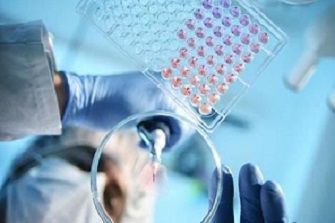
He Weiwen: Wild Allegations vs. Facts
As the COVID-19 pandemic ravages the world, with total cases growing rapidly by the day, U.S. Secretary of State Mike Pompeo has been busy blaming China with unsupported “lab conspiracy” claims and calling the coronavirus the “Wuhan virus.” He presumes to hold China accountable for the origin of the virus and a purported “cover-up.” The attorney general of the state of Missouri filed a lawsuit seeking compensation from China. President Donald Trump shared the allegations. Similar charges and threats against China have come from a few people in European countries, India and Australia, demanding reparations.
2020-05-11 -

John Ross: Most countries dismiss US' blame-shifting amid pandemic
The origin of a virus is to be determined by medical experts - not politicians without experience conducting scientific research. Not one notable medical expert has supported the Trump administration's claim. Indeed, numerous medical experts have stated the claim is without merit. US allies, such as Britain and Australia, have also rejected the claim. Why, therefore, is a lie, rejected by credible medical professionals, and one that therefore carries zero international credibility, being put forward daily by the Trump administration?
2020-05-09 -
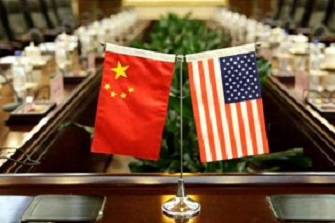
Zhao Minghao: Can China, U.S. Emerge Unscathed?
As COVID-19 sweeps across the world, its multifaceted impact on China-U.S. relations is increasingly prominent. A view held in some strategic circles in the United States is that China is using the pandemic in a disinformation campaign designed to elevate its own global influence. As China leads the world recovery, this thinking goes, it will exploit the opportunity to shape the post Covid-19 world.
2020-05-07 -
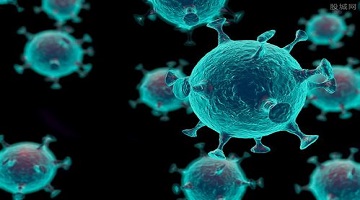
Wang Wen: The Coming New Civilization
To focus solely on border security is narrow-minded. Finger pointing in a global crisis is short-sighted. Infectious diseases constitute challenges far beyond the realm of medical science and the borders of any single country. They test our global conceptions and mindset.
2020-05-06 -
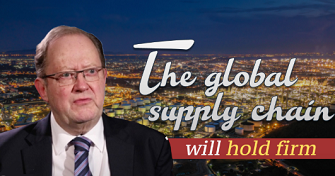
John Ross: The global supply chain will hold firm
The sudden outbreak of a new pandemic has dealt a severe blow to China and the world economy. Can the Chinese economy survive COVID-19? Will there be an impact on the global supply chain? John Ross, former director of economic and business policy for the Mayor of London and a senior fellow at the Chongyang Institute for Financial Studies under Renmin University of China, shares his views with CGTN.
2020-05-06 -
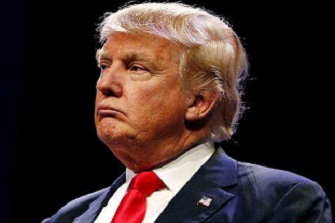
William Jones: Republican Senatorial Committee lays out clear path for Trump to lose the election
The dimwits in the National Republican Senatorial Committee have issued a clear path for Trump's electoral defeat in 2020. Their recommended election strategy to their colleagues is simple: "Attack China!" A 57-page memo issued by the Committee instructs Republican candidates not to defend President Trump (except for his travel ban from China), but to attack China for the "cover-up" of the coronavirus, leading to the deaths of tens of thousands of Americans.
2020-05-06 -

An open letter to UN, G20, and national governments on COVID-19 impact on food security
We are writing to call for a set of internationally coordinated, locally relevant actions to address the medium- and longer-term impacts of COVID-19 on agriculture, food, and nutrition security.The current global health crisis has disrupted supply chains and laid bare the need to address the inter-related challenges of hunger, malnutrition, climate change, and environmental degradation and has emphasized the need for concerted, proactive and collective actions to achieve the sustainable development goals (SDGs) adopted by the UN in 2015.
2020-05-06 -

Huang Yi: what can we learn from COVID-19 and Past Crises?
what can we learn from COVID-19 and Past Crises?
2020-04-30 -
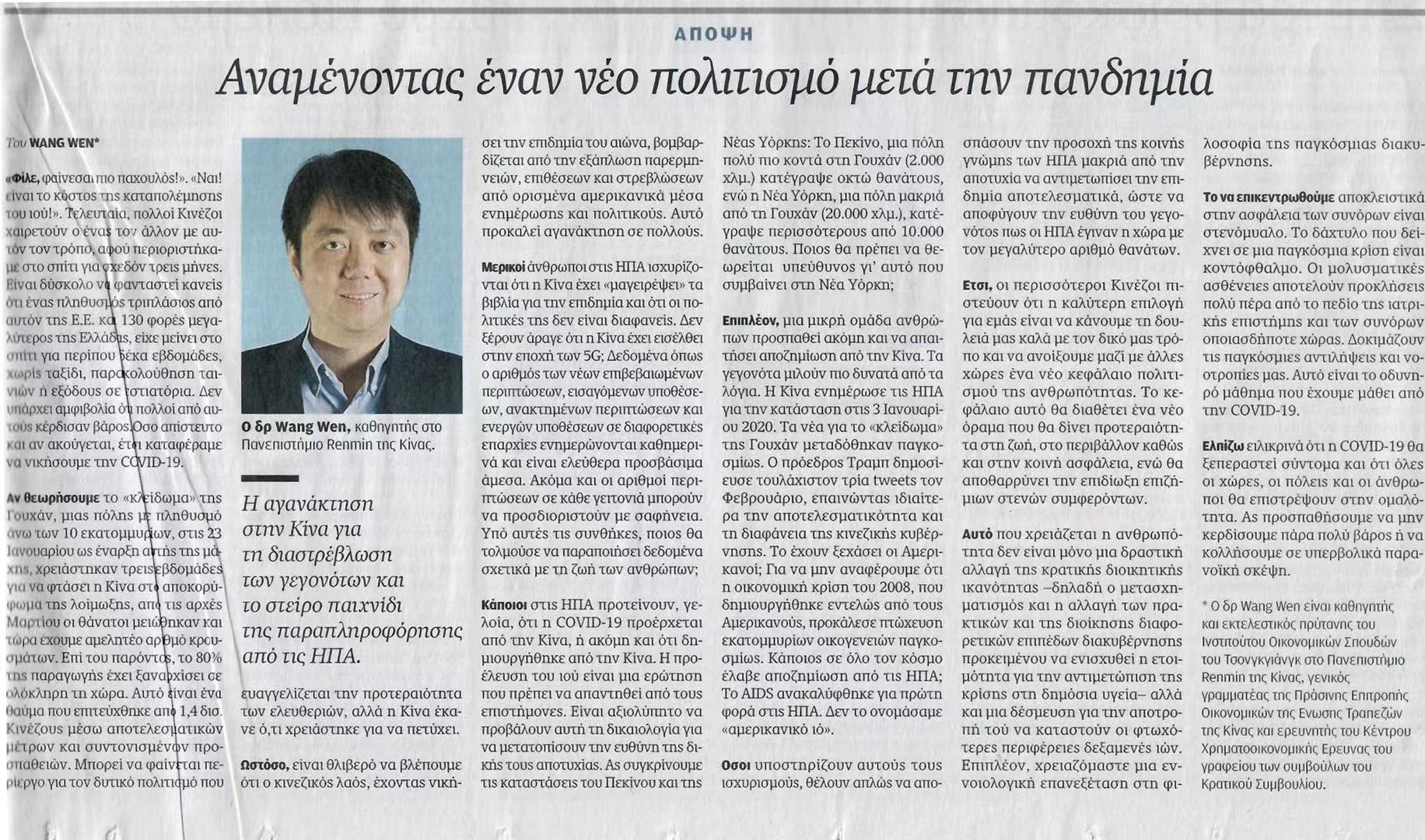
Wang Wen : Αναμένοντας έναν νέο πολιτισμό μετά την πανδημία
Επιπλέον, μια μικρή ομάδα ανθρώπων προσπαθεί ακόμη και να απαιτήσει αποζημίωση από την Κίνα. Τα γεγονότα μιλούν πιο δυνατά από τα λόγια. Η Κίνα ενημέρωσε τις ΗΠΑ για την κατάσταση στις 3 Ιανουαρίου 2020. Τα νέα για το «κλείδωμα» της Γουχάν μεταδόθηκαν παγκοσμίως. Ο πρόεδρος Τραμπ δημοσίευσε τουλάχιστον τρία tweets τον Φεβρουάριο, επαινώντας ιδιαίτερα την αποτελεσματικότητα και τη διαφάνεια της κινεζικής κυβέρνησης. Το έχουν ξεχάσει οι Αμερικανοί; Για να μην αναφέρουμε ότι η οικονομική κρίση του 2008, που δημιουργήθηκε εντελώς από τους Αμερικανούς, προκάλεσε πτώχευση εκατομμυρίων οικογενειών παγκοσμίως. Κάποιος σε όλο τον κόσμο έλαβε αποζημίωση από τις ΗΠΑ; Το AIDS ανακαλύφθηκε για πρώτη φορά στις ΗΠΑ. Δεν το ονομάσαμε «αμερικανικό ιό».
2020-04-28 -
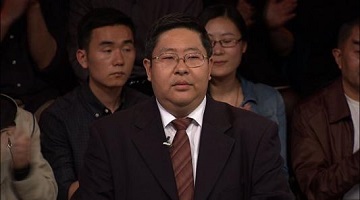
Jia Jinjing: BRI cooperation vital in fight against virus
A patchwork of approaches adopted by governments across the world in the fight against the coronavirus have led to differing results, proving that isolating and quarreling are pointless and harmful in the face of a global crisis, and only through cooperation can we defeat our invisible enemy. The Belt and Road Initiative (BRI) is a global cooperation mechanism that has proven capable of saving lives from the deadly virus and bringing more opportunities for the world's economic recovery.
2020-04-28 -
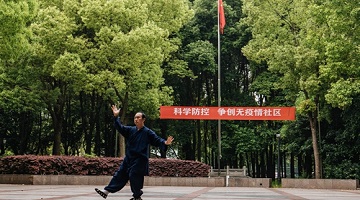
John Ross: No US state meets China's work resumption criteria, as does EU
What can China offer to the world as more countries plan to ease restrictions and lift city lockdowns? Collective will of sticking to prevention and control measures in fending off risks of a resurgence of infections, close monitoring and tracking of suspected patients and close contacts with the help of high tech and massive testing are major experiences that China - the first country to suffer a severe impact from the outbreak of the COVID-19 and the first to emerge from the crisis - applied to strike a balance between saving their economy and not triggering a second outbreak. However, some observers don't believe the West could do the same.
2020-04-28 -

Zhao Minghao: The world after COVID-19: What a leadership test will bring
As the novel coronavirus continues to spread globally, the question around "how the pandemic will shape the world" has received much attention. As UN Secretary General Antonio Guterres said, this is the greatest test for humanity since WWII. So far, the disease has represented an overwhelming public health challenge, likely to trigger an economic recession and social unrest – all of which constitute a complicated crisis which has far-reaching implications for the world order.
2020-04-28 -

Wang Wen: Trump team is driving US to ‘failed state’ status
It's unthinkable that US media outlets would call their own country a "failed state." The term was once used to describe US adversaries such as Iran and Iraq.
2020-04-28 -
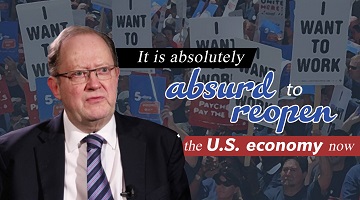
It is absolutely absurd to reopen the U.S. economy now
As the number of COVID-19 infections continues to rise, so does the U.S. unemployment rate, which is taking a huge toll on the U.S. economy. However, Donald Trump rushed to announce the news of restarting the U.S. economy. Is it really the right time now? And What's the outlook for unemployment in the U.S.? John Ross, former director of economic and business policy for the Mayor of London and a senior fellow at Chongyang Institute for Financial Studies under Renmin University of China, shares his views with CGTN. The opinions expressed in the video are his and do not necessarily represent the views of CGTN.
2020-04-28 -

Liu Zongyi: China, India need common front to confront COVID-19
The coronavirus pandemic has severely impacted almost every country, and many of the world's leading politicians and scholars are now discussing world order after the crisis. The pandemic will indeed change many things, but for the international political and economic landscape, it will be more of a catalyst, accelerating or revealing political and economic processes that already existed but are not so apparent.
2020-04-27 -
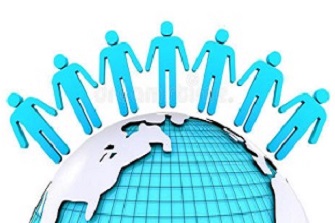
Danilo Türk: Cooperation, leadership vital to defeat pandemic
There is no doubt that the current, unprecedented global economic slowdown caused by the novel coronavirus pandemic requires unprecedented measures of global cooperation. However, the current global action is sadly insufficient and the future looks uncertain.True, the Extraordinary G20 Leaders' Summit offered a glimmer of hope. Several good proposals were made, but they were not given adequate attention in the international media and in the work of decision-makers. Many are focusing on other themes, mainly revolving around the statistics of the pandemic and its victims, and on measures taken at the level of countries.
2020-04-27 -
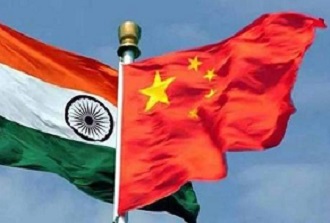
Liu Zongyi: Wuhan 2.0: a Chinese asessment
Faced with ethnic and religious conflicts, territorial disputes, and climate change, water resources crisis, and other non-traditional security threats, China and India as two ancient civilizations, should set an example for the world. The two countries should enhance mutual understanding through people to people exchanges and dialogue between civilizations.
2020-04-23 -
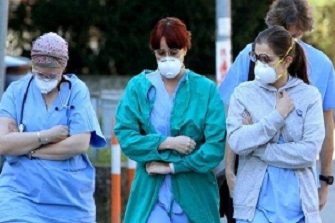
John Ross: Most countries dismiss US' blame-shifting amid pandemic
The coronavirus situation in the US and Europe is now so serious that it is overwhelming the ability of numerous Western governments to develop strategic policies. Given the immense efforts and suffering the Chinese people put into fighting the coronavirus, it is difficult for them to imagine that the situation in the West is very many times worse than it was at the worst moment of the crisis in China. But this reality is proven by the facts.
2020-04-23 -
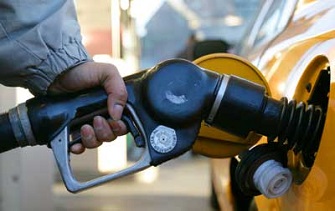
Negative oil futures don't reflect real price, clash over financial crisis
The negative U.S. oil futures were a preview of extreme situations and didn't reflect the real price, a global commodity expert said as the U.S. oil futures plunged below zero U.S. dollars a barrel on Monday for the first time in history.
2020-04-23 -
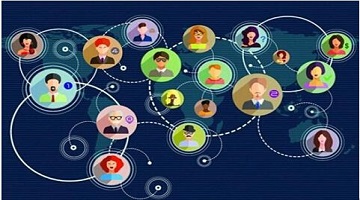
Wang Wen: Read the past, know the future
Former British prime minister Winston Churchill once said: "The farther back you can look, the farther forward you are likely to see." The COVID-19 pandemic has repeatedly broken people's previous assumptions. At first people thought it was just a new SARS, then it was predicted to likely come to an end when summer arrives.
2020-04-21
























































































 京公网安备 11010802037854号
京公网安备 11010802037854号





